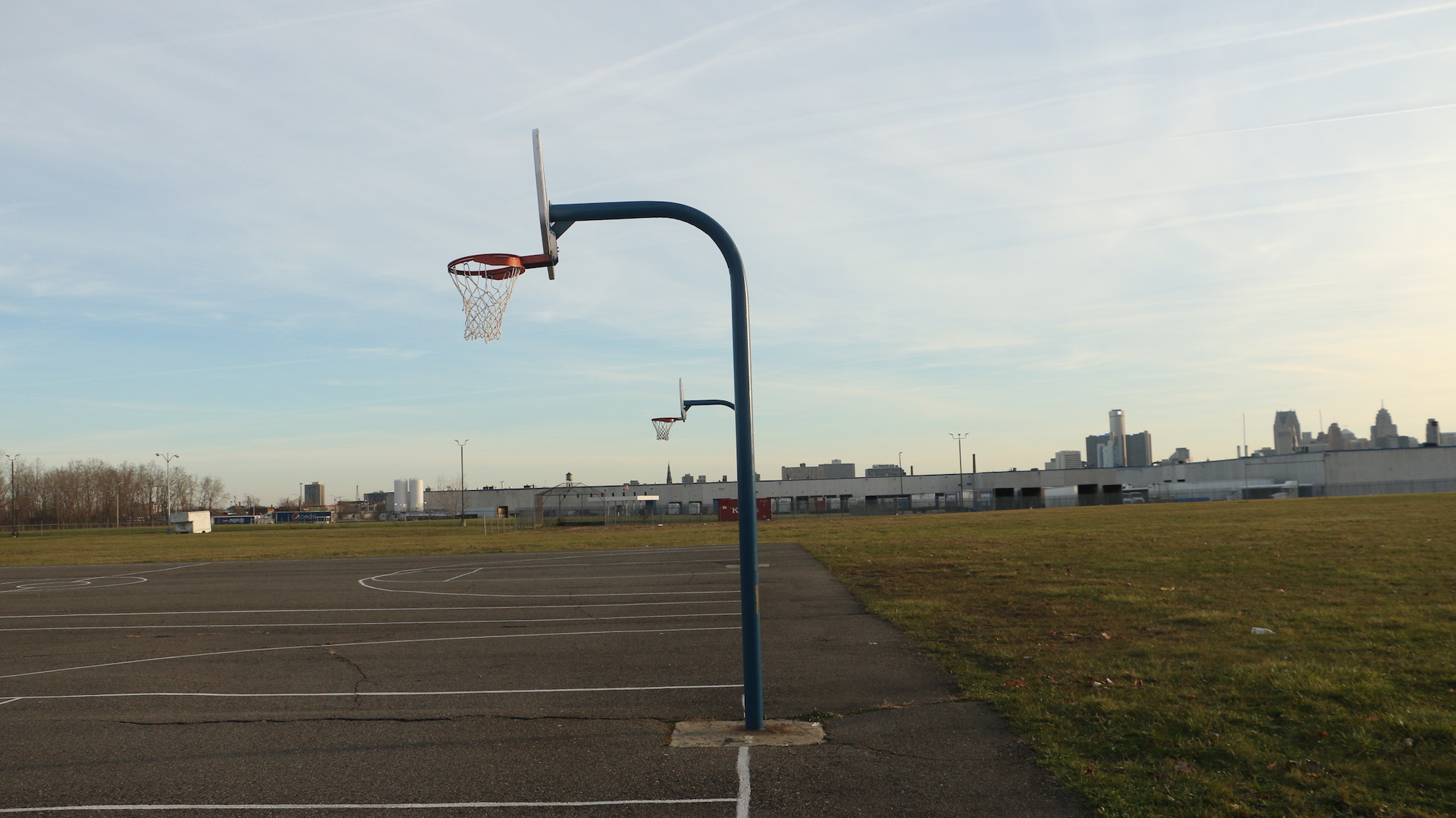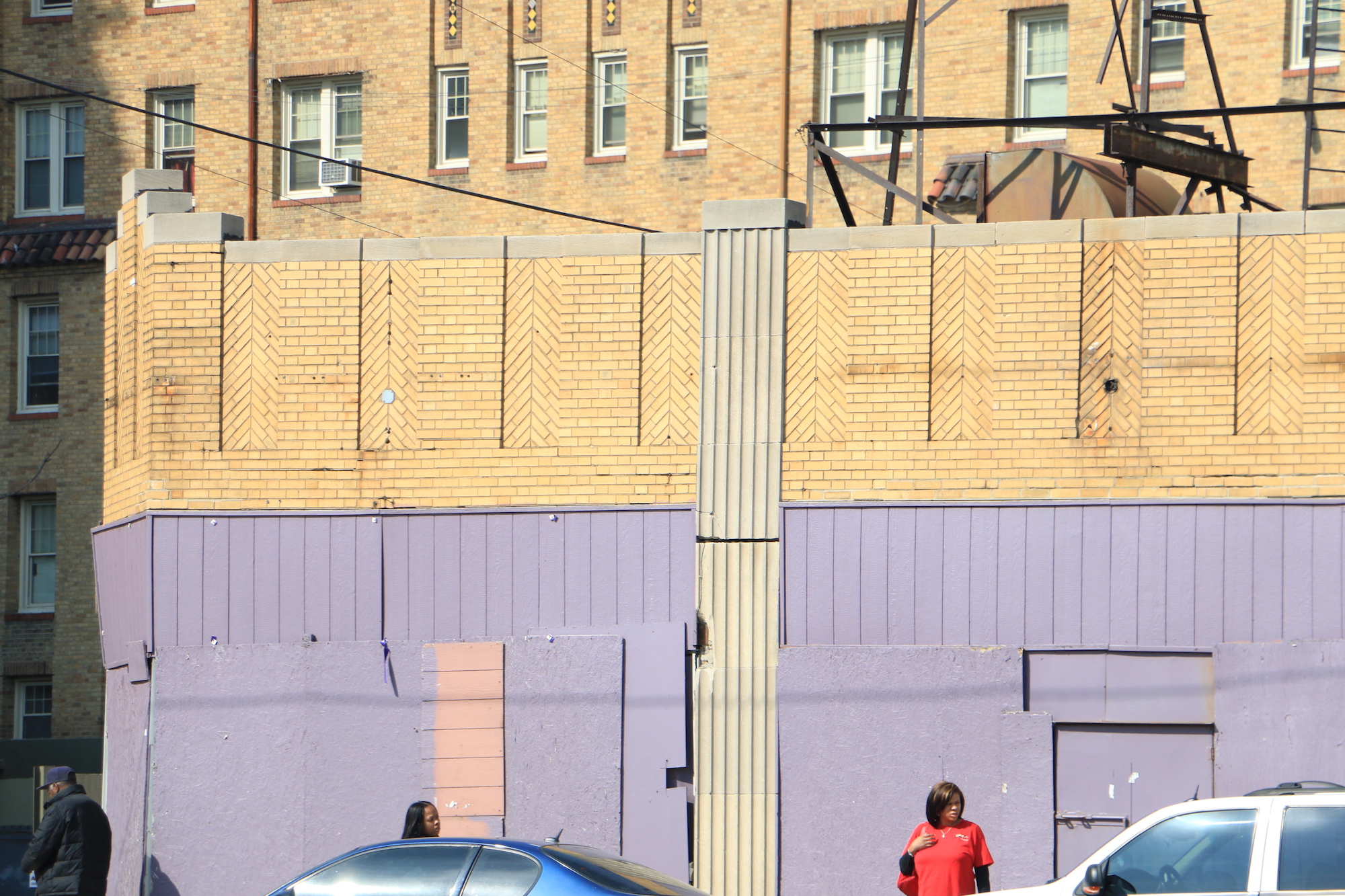— I am, and have long been, an anticapitalist: for me, the built structures being swallowed up by nature and rust were beautiful promises, indicative that this moment of bottomless consumption was not eternal, that everything humans make, even oppressive structures that deny nature, is temporary.
— when I moved to Detroit, I was enthralled by its ruins, even though I now point and laugh at White urban explorers drawn here for the same reasons. I think the finding of a spiritual home by Black folks is different from the privileged spelunking by White folks, and that’s what my first impressions of Detroit held solid beautiful Blackness; obvious survival. I thought, “I can grow here; my Blackness will be held here.”
— I preferred Detroit’s train station, with all the windows blown out, to any other building I’d seen in this country, dressed as it was in the graffiti of brave artists, proof that someone had transgressed the fences and risked the darkness and stood there unseen, leaving traces of themselves in the surface of the city.
— I came to Detroit as a visitor in 2006. I came to live here in 2009…the economy was busted from coast to coast, and Detroit seemed to know a way through. I arrived with some patchwork funding, saved from two earlier full-time jobs, and moved into a place with $400 monthly rent. I listened to Detroiters slowly teach me about my wrong-headed fetishes, about how to look beneath the surface of rust to the solid and mutable brilliance of the city.
— Baba Malik, Sister Charity, Baba Wayne, and Mama Myrtle were Black farmers. Grace, Shea, Kim, Rich and Scott, and later Marcia and Tawana were struggling with multiracial radical organizing. Lila and Linda, Shane, and the Newsoms were looking hard at policy and how resources flow, the function of racism. Jenny, Mike, and Diana were invincible, learning how to move ideas through metaphors, principles, and practices in order to generate place-based storytelling, to carve out more space for liberation…there are too many teachers to name; they were patient with me as I learned from what they had survived.
— one organizer looked at me with my little confidence and questions and, often, shock and said, with a smile, “you’re too sane for Detroit”…as with many things spoken to me by Detroiters, I couldn’t tell if it was a compliment, insult, or challenge, or some combination, but it didn’t matter because it felt so true.
— over the next year, I began to see the city under and within the city, to grasp that each ruin was a story, a family: something precious and jagged, some mix of misfortune and strategic displacement…rust might be caused by ghosts trying to get back into their old homes, to bring glory back to bricks thick with vines, to distract from trees growing up, bone-like, from the roof.
— time has passed, and now I say I pay rent in Detroit…integrity and contradiction have me hustling outside the city, loving this place but still not feeling right, feeling that I am taking too much from it.
— winter after winter has rusted my little ’97 Chevy, which was handed down to me by my sister. I’m sentimental, so her stickers supporting Obama/Biden’s first run still ride the bumper…hope and unity are rusty concepts these days: rouge on the surface that says things are changing, that things will change…but underneath, it’s hard to tell if anything changes for the better or if it’s all just decline…the rust on my car seems to protect it from hungry eyes…it’s ugly, so it must not be worth much…it’s valuable to me, but as you know, I have a thing for decay.
— at this point, the city exists because of Black brilliance: the makers and farmers and organizers who held the line during decades of divestment…a Black renaissance has been brewing: a thrilling pounding creative river just under the surface.
— but the city has not been as fortunate as my little car…hungry eyes have looked through the broken windows, the vined-over walls, and rusted doorknobs. White developers have seen the lush land of Detroit: the abundant water, the innovative survival strategies, the swagger, stunt, ambition, and hustle…they’ve come, bringing breweries, hot yoga, and condos. They use the word new with that same lost smile Columbus is known for.
— these days, racist capitalism is that cheating, no-good dog coming back all spiffed-up and charming, sniffing, making promises…long-term Detroiters continue their work, and I write a perpetual novel about it all that dates itself each time I try to describe a street or a neighborhood.
— and what do I know? I’m too young here, still; maybe the Black vibrancy that keeps bringing me back, bringing me home, can only be sustained so long in hiding. I know it’s irresistible in the light.







